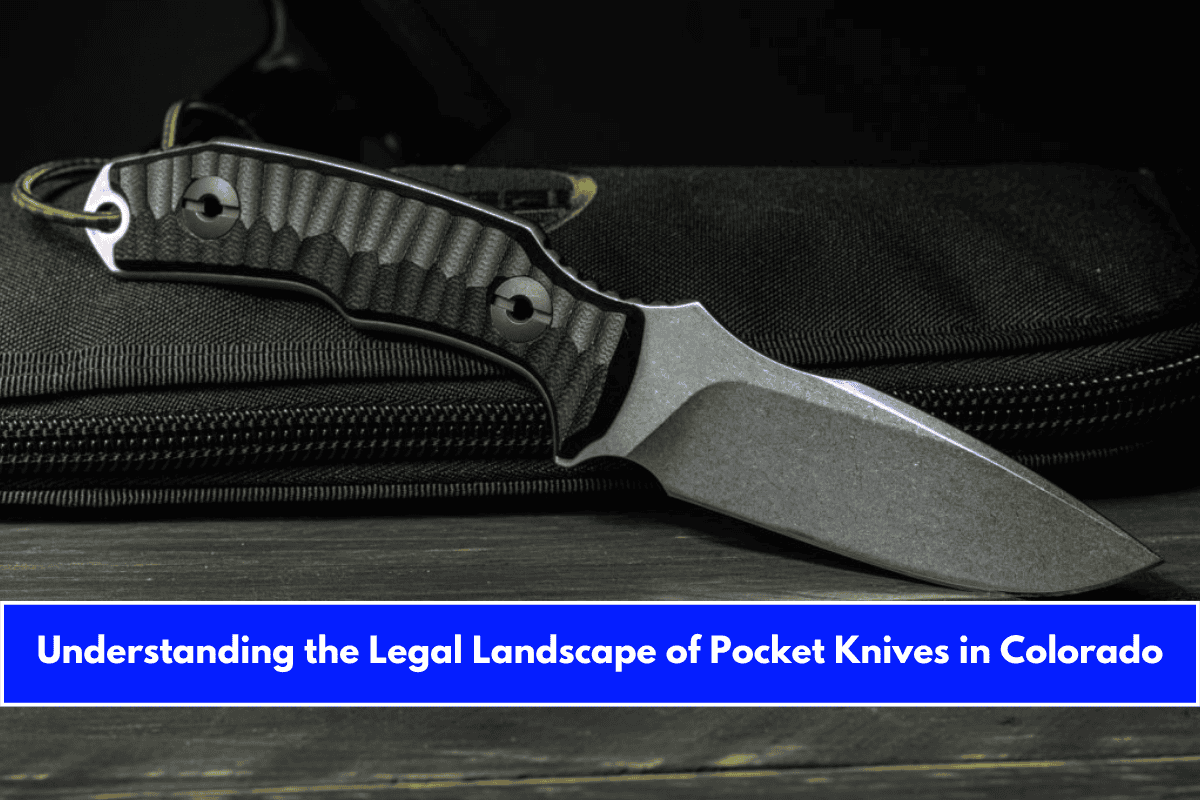Colorado’s knife laws are generally permissive but nuanced, especially regarding blade length, carry method (open vs. concealed), and local ordinances. Pocket knives-typically folding knives with blades under 3.5 inches-are legal to own and carry in most situations, but there are important restrictions and exceptions to be aware of.
Statewide Rules for Pocket Knives
Legal to Own and Carry:
- Any non-ballistic pocket knife (folding or fixed blade) with a blade up to 3.5 inches is legal to carry, either openly or concealed, throughout Colorado.
- Knives with blades over 3.5 inches can be carried openly, but concealed carry is generally prohibited unless you are on your own property, at your place of business, or engaged in hunting or fishing activities.
Illegal Knives:
- Ballistic knives (knives with a spring-propelled blade) are strictly prohibited statewide and carry felony penalties.
School Property:
- All knives, regardless of blade length, are banned from school property. Carrying a knife on school grounds is a felony offense.
Concealed vs. Open Carry
| Carry Type | Blade ≤ 3.5″ | Blade > 3.5″ |
|---|---|---|
| Open Carry | Legal | Legal (except ballistic knives) |
| Concealed Carry | Legal | Illegal (with exceptions for hunting/fishing, or on own property) |
- Concealed carry of knives with blades longer than 3.5 inches is a misdemeanor and can result in up to 364 days in jail and/or a $1,000 fine.
Local Ordinances and Preemption
Colorado allows municipalities to enact their own knife laws, which can be stricter than state law:
- Denver: Prohibits switchblades and gravity knives entirely, regardless of blade length.
- Boulder & Colorado Springs: Restrict concealed carry of any knife and prohibit displaying knives in a manner that threatens or alarms others.
- Aurora: Imposes its own restrictions on knife types and carry methods.
Always check local ordinances before carrying a pocket knife in Colorado cities, as rules can vary significantly.
Exceptions and Special Circumstances
- Hunting and Fishing: Carrying knives of any blade length is permitted if used for hunting or fishing, but this must be raised as an affirmative defense if challenged by law enforcement.
- Self-Defense: Carrying a knife for self-defense is allowed, but use of a knife must comply with Colorado’s self-defense laws, which require that force be reasonable and proportional to the threat.
- Occupational Use: Certain professionals (e.g., plumbers, electricians) may be allowed to carry longer blades as tools, but should verify with local authorities.
Penalties for Violations
- Carrying a concealed knife with a blade over 3.5 inches: Class 1 misdemeanor (up to 364 days in jail and/or $1,000 fine).
- Carrying a ballistic knife: Felony (1–3 years in prison for first offense, with higher penalties for repeat offenses).
- Possession on school property: Felony, with severe penalties.
Practical Tips
- Blade Length: For everyday carry, choose a pocket knife with a blade under 3.5 inches to avoid most legal issues.
- Check Local Laws: Municipalities may have stricter rules than the state-always check before carrying.
- No Knives at Schools: Never bring a knife onto school property, regardless of size or type.
- Display Caution: Avoid displaying knives in a threatening manner, especially in cities with strict ordinances.
Pocket knives with blades up to 3.5 inches are legal to carry openly or concealed in Colorado, except on school property and subject to stricter local ordinances.
Concealed carry of knives with blades over 3.5 inches is generally illegal, and ballistic knives are banned statewide. Always check local regulations to ensure compliance and avoid severe penalties.
Sources:
- https://www.shouselaw.com/co/defense/laws/knife-laws/
- https://www.akti.org/preemption-law-and-knives/
- https://www.akti.org/state-knife-laws/colorado/
- https://www.mastersonhall.com/is-it-legal-to-carry-a-knife-in-colorado-weapons-laws-explained/











Leave a Reply